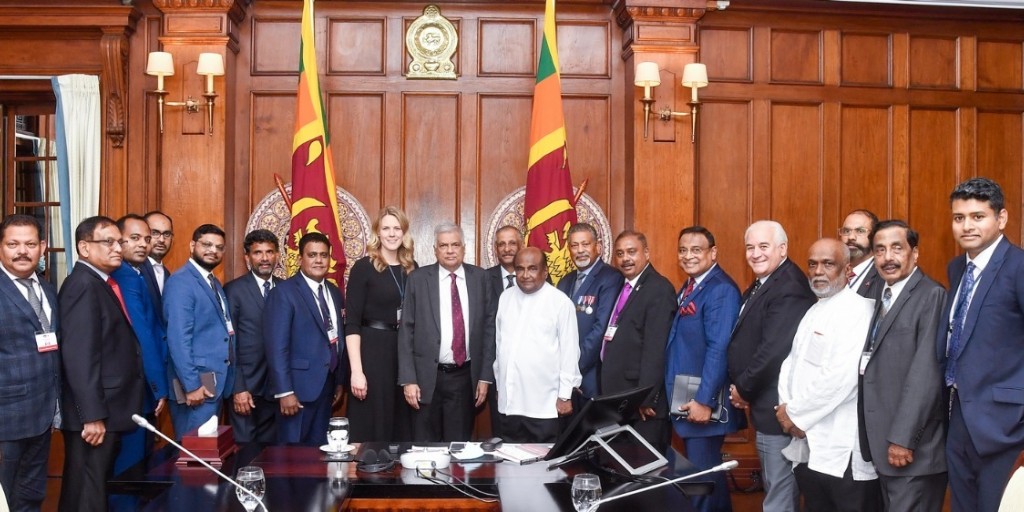
Responding to the recent visit of Canada’s business delegation to Sri Lanka, MP Gary Anandasangaree expressed his disappointment in Canadian MPs seeking investment “in a failed state with a horrendous human rights record and endemic corruption.”
Deeply disappointed that @handongontario and @RachaelThomasMP encouraged #Canadians to invest in a failed state with a horrendous human rights record and endemic corruption. This was not a Gov of Canada sanctioned mission but rather 2 I’ll advised MPs going on a free trip. https://t.co/4pteX4W7Se
— Gary Anandasangaree (@gary_srp) November 18, 2022
The visit composed of 18 members including two Canadian MPs, Han Dong and Rachael Thomas. Han Dong, sat down with Indeewari Amuwatte of Ada Derana 24 to discuss these potential investment opportunities as an avenue for political change.
During the interview, Dong claims that investment can facilitate processes of reconciliation.
The MP claimed that through his discussion with all parties it was clear that Sri Lanka was ready for a new start. Dong added that “everyone is ready to move ahead on truth and reconciliation, to settle some of the historical problems.”
In response to being asked how reconciliation can be achieved, Han Dong states that there needs to be conversations and dialogues which build mutual trust. He adds that investments in different regions can contribute to processes of reconciliation, “sustainable policies to welcome investments in different regions in Sri Lanka [will] truly lift people out of poverty, truly give access to women and girl[s] [and] to education and political representation.”
At a later point in the interview, the MP states that investing necessitates reconciliation. “We can’t talk about the economy without talking about reconciliation, for investors they want a stable political environment to make that investment.”
Analysis by Asvini Uthayakumaran
Dong’s claims that investment will bring reconciliation to the island is worth further interrogation.
Conflict-related sexual violence is among the many human rights violations committed by the Sri Lankan state. A report published by People for Equality and Relief in Lanka (PEARL) in September highlights that Sri Lanka has failed to punish perpetrators of conflict-related sexual violence against Tamils. Victims, families of victims, and activists have repeatedly emphasized that international justice is the only recourse for survivors of conflict-related violence. The priority of the international community should be to secure justice for victims. Reconciliation is not possible without this justice. To invest in a state that has failed to address these grave human rights violations contributes to the ongoing dismissal of victim grievances.
Dong’s claims that everyone is ready to move towards reconciliation conveniently ignore the relatives of the disappeared that have been protesting in the North East for over 2000 days. An estimated 138 protesters have died without knowing the fate of their loved ones. Families of the disappeared have frequently voiced their concerns regarding their lack of confidence in domestic mechanisms such as the Office of Missing Persons (OMP). According to the United Nations Human Rights Council (UNHRC), the OMP has not been able to trace a single disappeared person. Protesters have repeatedly appealed to the international community to deliver justice.
In the interview, MP Dong also states that investments in different regions of the island will contribute to political representation. Tamils and Muslims on the island face consistent political repression at the hands of the Sri Lankan state. In 2021 the military was granted 15% of the total state budget amounting to more than both the health and education sectors. In the Mullaitivu District, there is an estimated one soldier for every two civilians. The heavy militarisation fosters an environment of surveillance. Tamils exercising their freedom of assembly have reported being monitored and harassed by Sri Lanka’s security forces. A report from the United Nations noted that “Families of the disappeared face surveillance, questioning, intimidation and unannounced visits by intelligence officers and the police, especially when they are actively involved in protests or memorialization". Wickremesinghe's recent budget announcement will see even more money siphoned off to the the military. Political representation will not be achieved through investments, representation necessitates demilitarisation.
The linkages Dong makes between the interests of entrepreneurs that are looking to maximize returns on their investments and Tamil survivors of genocide seeking justice are opportunistic and tone-deaf. Investment is not sufficient for addressing the demands of Tamils in the Northeast. Investment does not hold accountable the Sri Lankan politicians that have been accused of war crimes. Reconciliation is not possible without justice and justice will not be achieved with mere investments.
If Canada is seeking to collaborate with the Sri Lankan government it must be through a human rights lens. Tamils on the island have repeatedly appealed to the international community to deliver justice. The claim that Sri Lanka is ready for investment and that investment will bring reconciliation simultaneously contributes to the erasure of Tamil voices and conceals the continued violence of the Sri Lankan state.
